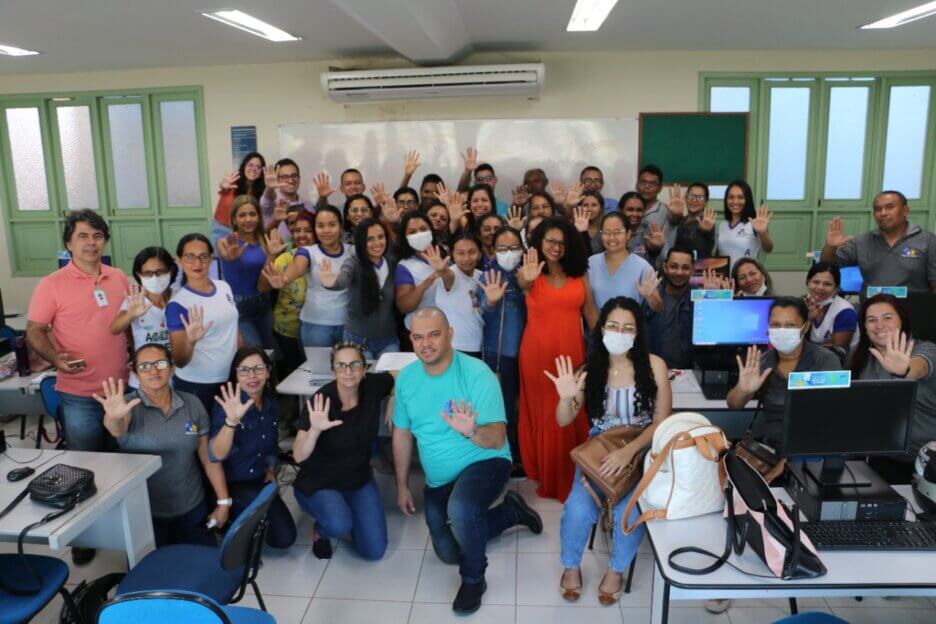By Bruno Cássio – LAIS/UFRN Communication Advisor
The capital of the state of Roraima, Boa Vista, is the first city in the Northern Region of Brazil to receive the team of researchers from the Technological Innovation in Health Laboratory of the Federal University of Rio Grande do Norte (LAIS/UFRN), responsible for training and implementation of the Salus 2.0 System, a platform that performs the intelligent monitoring of syphilis cases, with special attention to congenital syphilis records. The system is part of the set of actions of the “Syphilis No” Project, developed by LAIS/UFRN in partnership with the Ministry of Health and the Pan-American Health Organization (PAHO).
The first phase of the training work ended this Friday (23) and gathered professionals from seven health units. In the list of facilities benefited in this pilot phase are the Santo Antonio Children’s Hospital and six Basic Health Units that deal with different realities in their care routine, such as the reception of Venezuelan patients who migrated to the country after the worsening of the social, economic, and political crisis in Venezuela, and also the indigenous population from various ethnic groups and regions.
The team, which went to Boa Vista/RR, is composed of LAIS/UFRN researchers Fernando Lucas de Oliveira, André Noronha, Nícolas Veras, and Mayara Barbosa. They had the task of recording the training participants’ observations in order to adapt the platform’s functionalities to the regional context. For Fernando Lucas, who coordinated the platform’s implementation, “it is important to listen to the professionals who are at the service end, dealing with syphilis cases on a daily basis and, in this way, making the system more responsive”.
Ana Raquel Martins, municipal coordinator of STI, highlighted the expectation of being able to count on the help of technology to reduce the number of congenital syphilis cases in the capital of Roraim. “Our current incidence is 17 cases for every thousand live births, which is high and we have been trying to develop partnerships to reduce these rates, especially in prenatal care. With the system, we believe that we will better integrate this work and have a better return on our actions,” she explained.
According to Francinete da Silva Rodrigues, superintendent of Health Surveillance in Boa Vista/RR, the platform developed by LAIS/UFRN will bring benefits, both for the assistance and the surveillance, “the integration, the information agility, we have been looking for this for a long time and this system has been bringing this to us, this is important for the surveillance, to have this information in real time”, she emphasized.





